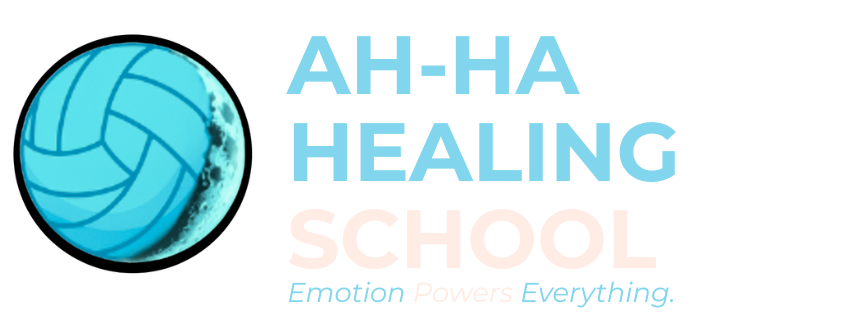
Introduction: The Addiction Crisis—And What’s Missing
Addiction is everywhere—alcohol, drugs, screens, food, work, even relationships. Despite billions spent on treatment, relapse rates remain stubbornly high. Families suffer, communities struggle, and those seeking help often feel stuck in a revolving door of shame, blame, and short-term fixes.
Why? Because most addiction solutions focus on symptoms, not root causes. They treat addiction as a disease or a moral failing, overlooking the deeper reality: Addiction is rooted in emotional pain. At AH-HA Healing, we believe it’s time for disruption—time to address addiction at its source, with emotional fitness as the new paradigm for true healing.
The Science: Trauma, Emotional Pain, and Addiction
Groundbreaking research by Dr. Gabor Maté and others shows that addiction is rarely about the substance or behavior itself—it’s about the pain beneath. Trauma, neglect, loss, or chronic stress create wounds that people try to numb or escape.
Key findings:
– Childhood trauma and emotional neglect are strong predictors of addiction.
– Unresolved emotional pain fuels the cycle of craving, use, and relapse.
– Emotional regulation and self-compassion are critical for lasting recovery.
Traditional treatments—12-step programs, medication, or talk therapy—help some, but often miss the core: healing emotional pain and building the skills to process life’s challenges without numbing out.
The Current Landscape: What’s Being Offered
Most addiction programs focus on:
– Abstinence and willpower
– Group therapy and peer support
– Relapse prevention plans
– Medication-assisted treatment
While these tools are valuable, many people still struggle with shame, isolation, and the sense that something is “wrong” with them. Relapse is common, and few programs address the underlying emotional wounds that drive addiction in the first place.
What’s Missing:
A science-based, compassionate approach that treats addiction as an emotional injury—not a character flaw or incurable disease.
What Is Emotional Fitness in Addiction Recovery?
Emotional fitness is the ability to:
– Recognize and name emotional triggers and cravings
– Process pain, shame, and grief without self-judgment
– Build resilience to setbacks, stress, and disappointment
– Develop new coping skills and healthy relationships
It’s about learning to sit with discomfort, process difficult feelings, and choose connection over escape.
Emotional Fitness vs. Abstinence-Only Models
– Abstinence-Only: Focuses on stopping the behavior, often through willpower or avoidance.
– Emotional Fitness: Focuses on healing the pain that drives the behavior, building lasting resilience.
The first is a short-term fix. The second is a lifelong foundation.
The Hidden Costs: When Emotional Pain Goes Untreated
When emotional pain is ignored, addiction becomes a way to cope. This leads to:
– Relapse, even after periods of sobriety
– Shame, guilt, and self-criticism
– Broken relationships and isolation
– Physical health problems and mental health struggles
People may “white-knuckle” their way through recovery, but without emotional fitness, the underlying pain remains—and so does the risk of relapse.
The Research: Emotional Regulation and Recovery
Studies by Hendershot et al. (2011) and others show that emotional regulation skills are among the strongest predictors of sustained recovery. People who learn to process emotions, build self-compassion, and connect with others are far more likely to achieve lasting change.
Other research highlights the limits of willpower alone and the need for trauma-informed, holistic approaches that honor the whole person.
Current Solutions—And Their Limits
What’s Out There:
– 12-step groups and peer support
– Cognitive behavioral therapy (CBT)
– Medication-assisted treatment
– Mindfulness and relapse prevention apps
What’s Missing:
– Trauma-informed, science-based emotional fitness training
– Tools for processing shame, grief, and emotional pain
– Community and ongoing support for emotional resilience
– Integration of emotional fitness into daily recovery practices
AH-HA Healing’s Approach: The Science of Emotional Pain in Addiction
At AH-HA Healing, we see addiction as a response to pain, not a personal failing. Our programs are grounded in 30+ years of research, blending the Science of Emotional Pain, trauma-informed care, and holistic healing.
Our Four-Quadrant Model for Addiction Recovery
1. Mental:
– Challenge limiting beliefs about self-worth, recovery, and identity
– Teach growth mindset and cognitive flexibility
2. Emotional:
– Trauma-informed workshops for processing pain, shame, and grief
– Practical tools for emotion regulation, self-compassion, and repair
3. Physical:
– Integrative therapies: movement, nutrition, rest, and somatic healing
– Understanding how emotions impact cravings and physical health
4. Spiritual:
– Reconnecting with purpose, hope, and authentic self
– Building meaning and connection for sustainable recovery
What We Offer
– Recovery Retreats: 7-day immersive experiences for healing and transformation
– Workshops & Coaching: Emotional fitness training for individuals and families
– Digital Wellness Community: Ongoing support, resources, and connection
– Free Guides: Tools for emotional check-ins, relapse prevention, and self-compassion
Practical Tips: Building Emotional Fitness for Recovery
1. Track Your Triggers:
Notice which emotions or situations spark cravings. Awareness is the first step.
2. Practice Self-Compassion:
Speak to yourself with kindness, especially after setbacks. Recovery is not linear.
3. Integrate Mindful Movement:
Use walks, yoga, or stretching to process emotions physically.
4. Build a Support Network:
Connect with people who understand and support your healing journey.
5. Seek Trauma-Informed Care:
Join a retreat, workshop, or therapy program that addresses emotional pain, not just behavior.
Real Stories: AH-HA Healing in Addiction Recovery
“I tried everything to quit, but nothing worked until I addressed the pain underneath. AH-HA Healing gave me the tools to heal and stay free.”
— Lisa, Recovery Retreat Participant
“For the first time, I don’t feel broken. I feel hopeful and whole.”
— Steven, Coaching Client
Call to Action
Ready for a new approach to addiction recovery?
Join our next Recovery Retreat, download our free guide, or connect with our digital wellness community at ahhahealing.com.







Emotional fitness is the wellness revolution the world has been waiting for—a vital shift beyond the limits of traditional mental health. It’s time to separate emotional fitness from outdated systems of therapeutic funding, education, and hopelessness.